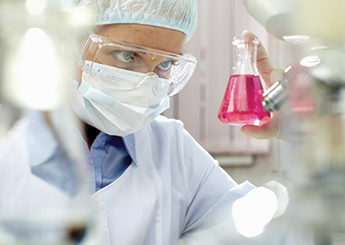CDC: Lab workers must guard against unknown pathogens

Atlanta – Multiple cases of melioidosis – a bacterial infection that has potentially fatal consequences – reinforce the need for researchers in laboratories to follow proper safety procedures when working with unknown pathogens, according to the Centers for Disease Control and Prevention.
A new analysis of melioidosis cases from 2008 to 2013 in the United States revealed at least two incidents involving workplace exposure, CDC said.
Melioidosis is caused by the bacterium Burkholderia pseudomallei, which is found in tropical climates and can affect humans as well as animals. CDC analyzed 37 confirmed cases of melioidosis during the five-year research period. About 64 percent of the cases involved people who had traveled to tropical regions, and two incidents involved workplace exposure.
While performing follow-up laboratory diagnostics, the agency found that 261 workers were at risk of exposure. Of that group, 16 percent had high-risk exposures, 50 percent had low-risk exposures and 34 percent had undetermined exposure levels.
CDC said laboratory workers should wear proper personal protective equipment when working with unknown pathogens. The agency also recommended that all possible workplace exposures be reported voluntarily to CDC’s Bacterial Special Pathogens Branch.
The study was published in the July 3 edition of CDC’s Morbidity and Mortality Weekly Report.

